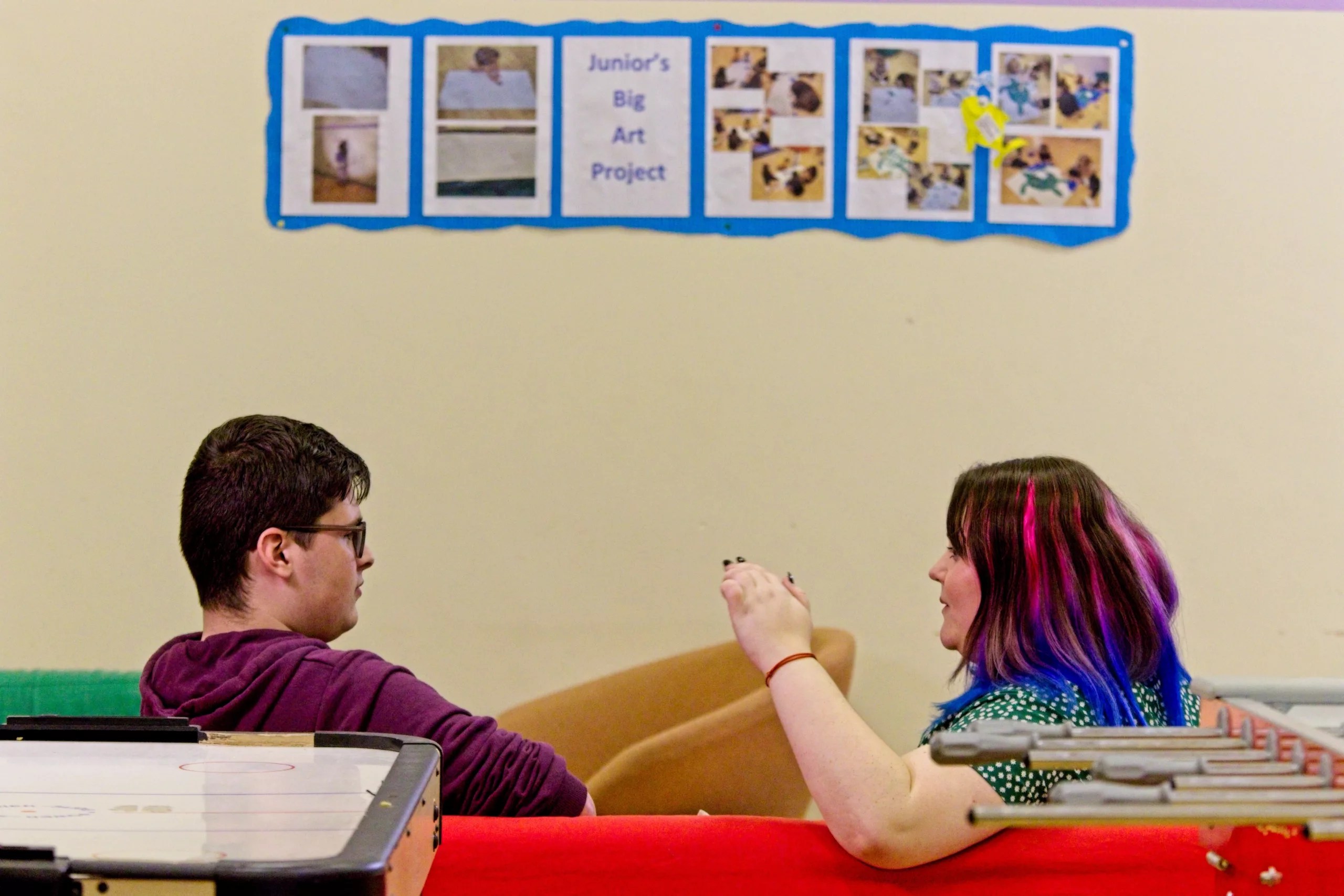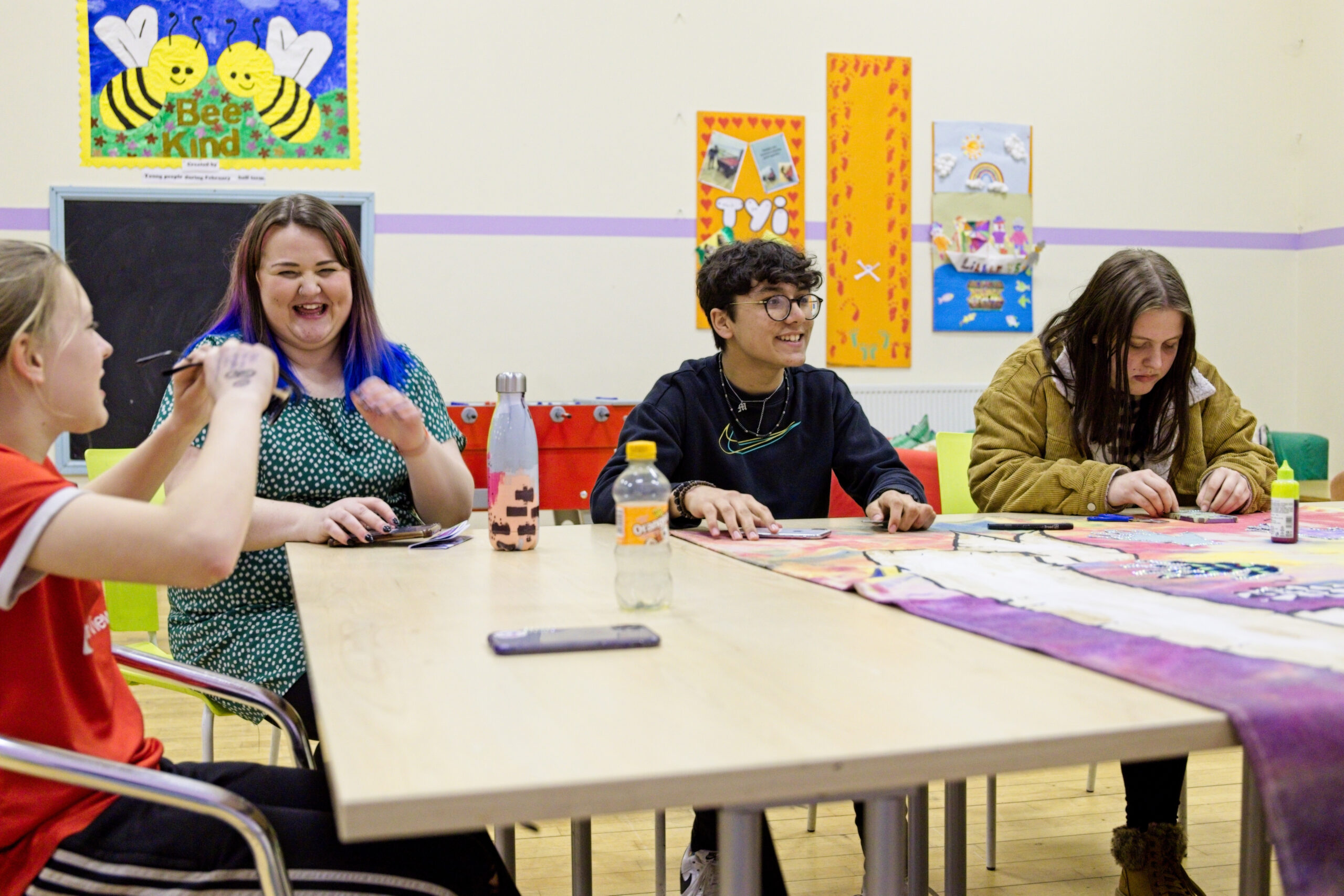“A lot of the generic youth work provision in Barnsley doesn’t exist now, it’s delivered by the voluntary sector. So whereas 10 years ago young people had lots of youth clubs in their community that were run by the council, and good, well-funded provision, we’re one of the few providers left that is still consistently there for young people every week.”
Your support changes lives. Find out how you can help us help more people by signing up for a subscription
Thanks to mass spending cuts from central government, councils have seen their budgets shrink. Money for youth services has been a particular casualty. As austerity hit, nationwide, 750 youth centres closed from 2010 to 2019, while 4,500 jobs in youth work have been lost. In London, for example, nearly half of the city’s youth centres closed in the decade to 2023.
Cuts are continuing, too, with Bristol City Council planning to decrease funding over the next three years thanks to budget constraints.
Doreen Lawrence, the mother of murdered teenager Stephen Lawrence, said cuts to youth services were to blame for an increase in youth violence.
Councils do the best they can, but volunteers fill the gaps. In Barnsley, without volunteers, says Taylor, kids “would have nowhere to go”.
Advertising helps fund Big Issue’s mission to end poverty
Get the latest news and insight into how the Big Issue magazine is made by signing up for the Inside Big Issue newsletter
It is not just youth work.
The UK’s social care system would collapse without the work of unpaid carers, a new report has warned.
Just 27% of the country’s carers get paid support, and unpaid carers provide support “equivalent to four million paid care workers”, according to the King’s Fund think tank.
These volunteers are often thought of differently to the standard idea of a “volunteer”. They are likely to be friends or family members, looking after a loved one. Meanwhile, in 2021/22 there were 165,000 vacancies in the care sector.
However, despite the system’s growing reliance on these unpaid workers, “carers are not always able to access the support they need”, the report found.
Advertising helps fund Big Issue’s mission to end poverty
In care homes, the line between paid staff and volunteers is often blurred – especially where volunteers were “filling gaps”.
One study by the National Institute for Health Research found that “the boundaries between paid care work and the volunteer role were poorly delineated and appeared at risk of becoming increasingly blurred”.
Professor Ailsa Cameron, who led the study, says volunteers could try and go beyond their roles where paid staff had been reduced by cuts, but that her team didn’t witness that happening on any sites they visited.
“The settings we visited were clear that volunteers should not be doing any personal care, that it wasn’t their role, but my fear is that in some situations this might happen because people want to be helpful,” Cameron says.
And while there has been an increase in volunteering within public services, the increased role of charities can bring positives, says Nicole Sykes, director of policy and communications at Pro Bono Economics.
“It’s important to remember that charities don’t just provide services. They also allow communities to come together to solve problems and to build bridges and to solve loneliness. And create connection, which is important for our democracy, which is important for cultural integration,” Sykes says.
Advertising helps fund Big Issue’s mission to end poverty
Yet volunteers can only paper over the cracks until something fundamental changes, says Taylor: “We need a strategic approach from government to put some effort and some money into it. Because if we’ve not got a universal offer for young people it’s very much a postcode lottery and relying on the goodness of people. Although people are really willing to help, it’s not an infinite resource.”
Do you have a story to tell or opinions to share about this? We want to hear from you. Get in touch and tell us more.






